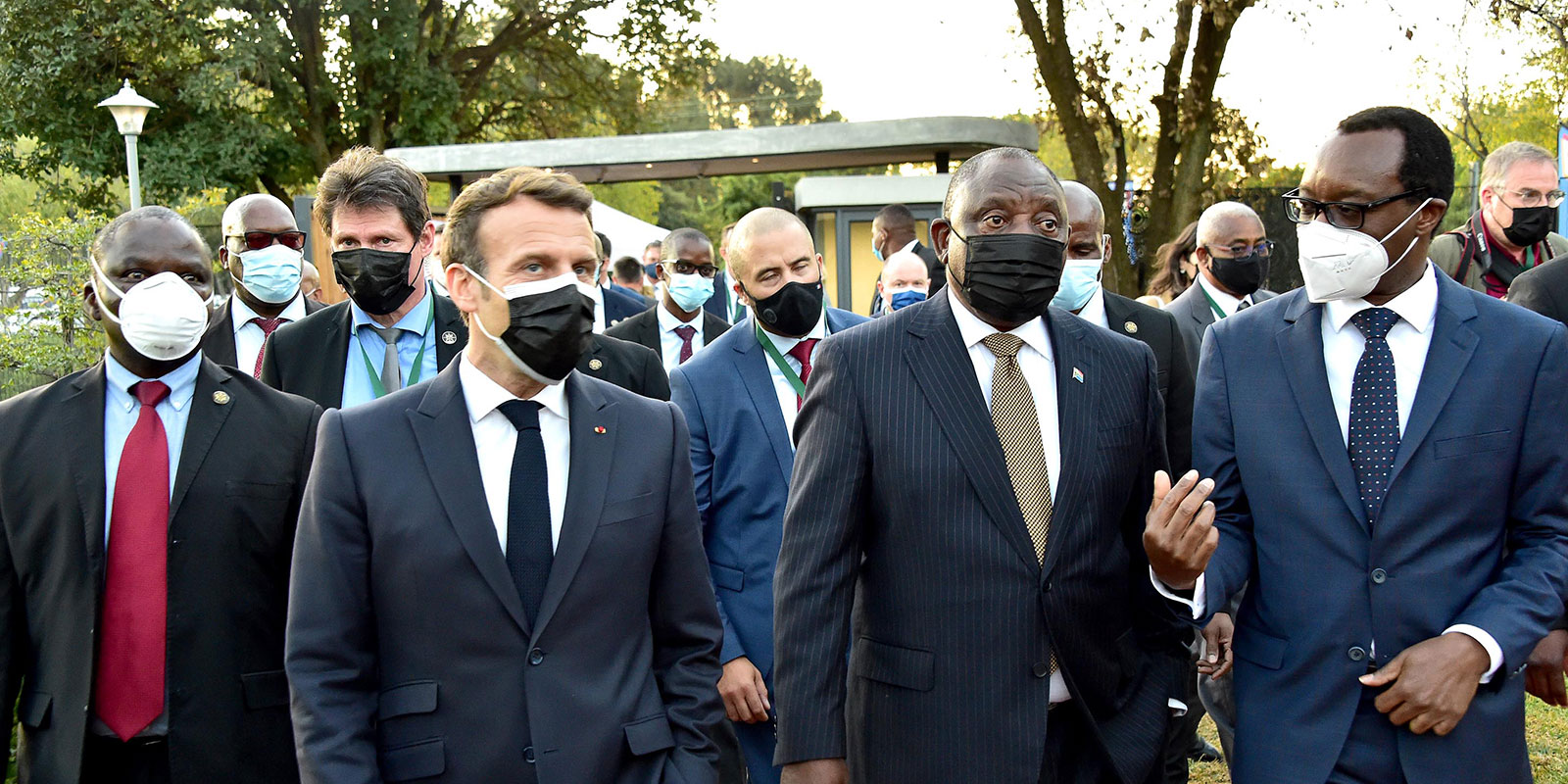Africa finds itself being courted again by many ardent suitors from the West and the East and in between. In July, Russian Foreign Minister Sergey Lavrov visited Egypt, Ethiopia, Uganda and the Republic of Congo. French President Emmanuel Macron visited Cameroon, Benin and Guinea-Bissau. Chinese Foreign Minister Wang Yi has also been to Africa and so has Turkish President, Recep Tayyip Erdogan. And then last week the United States (US) Secretary of State Antony Blinken visited South Africa, the Democratic Republic of Congo (DRC) and Rwanda.
Lavrov told African ambassadors to the African Union that the unipolar world was one, according to the West, which must be run according to a “rules-based world order.” According to Lavrov, the West changes these rules from case to case to suit itself.
Tweet
It is all rather reminiscent of the Cold War. And perhaps that is because we are in a new Cold War. Russian Defence Minister Sergei Shoigu told the Moscow International Security Conference on 16 August; “on 24 February 2022, the start of the special military operation in Ukraine marked the end of the unipolar world…The unconditional dominance of the US and its allies is a thing of the past.”
In Addis Ababa on 27 July, Lavrov told African ambassadors to the African Union that the unipolar world was one, according to the West, which must be run according to a “rules-based world order.” According to Lavrov, the West changes these rules from case to case to suit itself.
Whatever we call the current order, it is clear that the big powers are once again competing vigorously for influence as in the Cold War, and Africa, the regional bloc with the highest number of United Nations (UN) votes (54), as well as strategic geography and minerals, is a prize. Lavrov said that the West was trying to force African countries to choose between the West, Russia and China- which Russia was not. Blinken denied this in a major exposition of the Biden administration’s Africa policy at the University of Pretoria on 8 August. Too often African nations “have been told to pick a side in great power contests that feel far removed from the daily struggles of their people,” he said. “The United States will not dictate Africa’s choices. Neither should anyone else. The right to make these choices belongs to Africans, and Africans alone.”
Yet Blinken added an important rider, that “At the same time, the United States and the world will look to African nations to defend the rules of the international system that they have done so much to shape. These include the right of every country to have its independence, sovereignty and territorial integrity respected, a principle at stake now in the Ukraine.”
The new US Strategy Towards Sub-Saharan Africa which Blinken unveiled during his visit to Africa is certainly clear. America does see itself as in competition with Russia and China in Africa and it states that the US – and the West – are a better choice. The strategy states that the US and its allies increasingly regard Africa as integral to their national security and are “committed to advancing high-standards, values-driven, and transparent investments, as well as addressing political and security crises” in Africa.
By contrast, according to Blinken, China “sees the region as an important arena to challenge the rules-based international order, advance its own narrow commercial and geopolitical interests, undermine transparency and openness, and weaken U.S. relations with African peoples and governments.” Russia, meanwhile “views the region as a permissive environment for parastatals and private military companies, often fomenting instability for strategic and financial benefit. Russia uses its security and economic ties, as well as disinformation, to undercut Africans’ principled opposition to Russia’s further invasion of Ukraine and related human rights abuses.”
America does see itself as in competition with Russia and China in Africa and it states that the US – and the West – are a better choice.
Tweet
At a joint press conference with Blinken on 8 August, South Africa’s Minister of International Relations and Cooperation Naledi Pandor complained of “a lot of external interference in Africa” which had fuelled conflict and instability. She insisted that African countries should be free to establish relationships with different countries, including China. “We can’t be made party to conflict between China and the United States of America.” Pandor added, urging Washington and Beijing to resolve their differences which she said were impeding global economic growth and development.
Nonetheless, the Blinken visit apparently went well and Blinken and Pandor were able to discuss their differences without rancour. Pretoria consciously walks a fine line between the West on the one side and Russia and China on the other, believing that the West needs it too much as a beacon of democracy and economic strength on the continent, to cast it adrift. And indeed some Western ambassadors do privately acknowledge that they fear that if the West becomes too critical of South Africa that could drive it even further into the Russian camp.
Other African countries do not all have the same clout or leverage as South Africa but it does seem that the West is also reluctant to push the continent as a whole, fully into Russia’s- and China’s – embrace.
One could argue – along with South Africa and the 24 other African states which either abstained from or simply did not vote on the UN General Assembly resolution of 2 March condemning Russia’s aggression against Ukraine – that Africa should remain non-aligned in this contest, as it largely was during the (first) Cold War. On the other hand, one could also ask whether it is really in Africa’s interest to continue to remain a passive spectator to history rather than an active participant.
Peter Fabricius, independent foreign policy analyst


